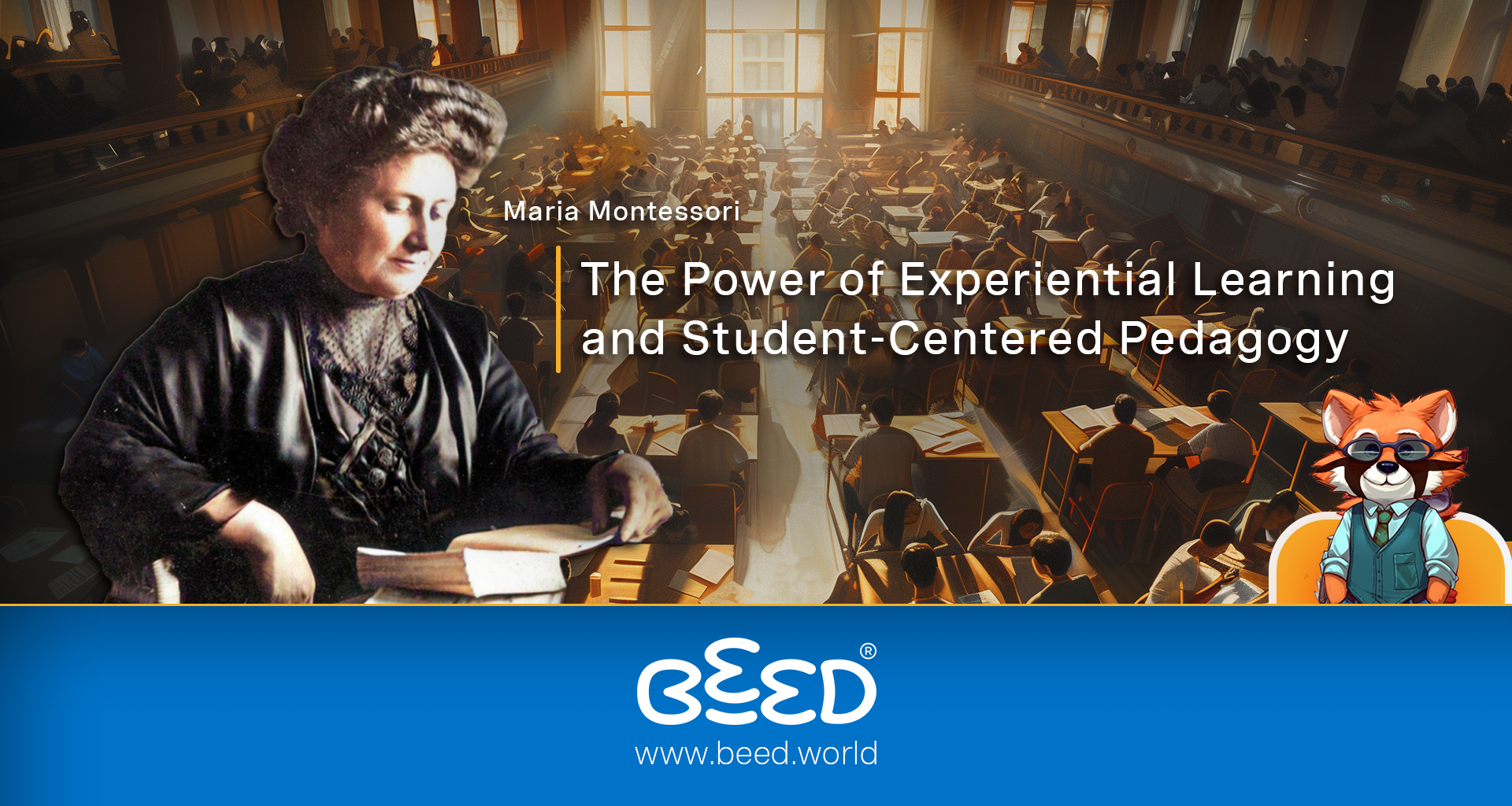Maria Montessori: The Power of Experiential Learning and Student-Centered Pedagogy

In the realm of education, few figures have left as indelible a mark as Dr. Maria Montessori. Her innovative approach to early childhood education has revolutionised our understanding of teaching and learning, fostering an environment that encourages children to explore, discover, and grow at their own pace. As an inspirational figure, Montessori’s contributions extend beyond the classroom, influencing educational practices worldwide and inspiring countless educators to adopt her methods.
Early life and career
Maria Montessori was born in Chiaravalle, Italy, in 1870. She was a trailblazer from a young age, breaking societal norms by pursuing a career in medicine. In 1896, she became one of the first women in Italy to earn a medical degree. Montessori’s medical background gave her a unique perspective on child development, blending scientific observation with educational theory.
The Birth of the Montessori Method
Montessori’ s journey into education began in 1907 when she opened the Casa dei Bambini, or Children’s House, in a poor district of Rome. Observing the children’s natural curiosity and ability to learn independently, she developed a new educational philosophy. The Montessori Method emphasises self-directed activity, hands-on learning, and collaborative play. The design cultivates a child's innate desire to learn and creates an environment that fosters this intrinsic motivation.
The Montessori Method posits that children learn most effectively when given the freedom to select activities that pique their interest. Montessori classrooms are characterised by a range of materials and activities that cater to different developmental stages. Teachers, or “guides,” play a crucial role in observing and facilitating rather than directing learning, allowing children to develop at their own pace.
Core Principles of Montessori Education
- Child-Centered Learning: Montessori espoused the belief that education ought to adapt to the distinct needs, interests, and developmental stages of each child. Her method encourages children to take the lead in their educational journey, promoting individualised learning.
- Prepared Environment: The meticulous design of Montessori classrooms fosters independence and exploration. They are equipped with materials that are accessible and appealing to children, encouraging them to engage with their environment and learn through hands-on experiences.
- Self-Directed Activity: Montessori education emphasises the importance of allowing children to choose their activities and learn through their own experiences. This approach fosters a sense of autonomy and self-discipline as children learn to manage their own learning process.
- Mixed-Age Classrooms: Montessori classrooms typically include children of different ages, promoting a sense of community and cooperation. Older children often mentor younger ones, reinforcing their own learning and developing leadership skills.
- Respect for the Child: Central to Montessori’s philosophy is the belief in treating each child with respect and dignity. This involves understanding and supporting their individual learning styles and needs, fostering a positive and nurturing educational environment.
Global Impact and Legacy
Maria Montessori’s educational philosophy has had a profound impact on teaching practices worldwide. Montessori schools have proliferated across the globe, from Europe and North America to Asia and Africa. Various cultural contexts have adapted the method, demonstrating its universal applicability and effectiveness.
Montessori’s influence extends beyond early childhood education. Educational practices at various levels, from elementary schools to higher education, have integrated her principles. Many contemporary educational movements, such as experiential learning and student-centred pedagogy, draw inspiration from Montessori’s work.
Continuing the legacy
Today, the Montessori Method continues to inspire educators, parents, and policymakers. Organisations like the Association Montessori Internationale (AMI) and the American Montessori Society (AMS) work tirelessly to preserve and promote Montessori’s principles, providing training and resources to educators worldwide.
Maria Montessori’s legacy is a testament to the power of innovative thinking and a child-centred approach to education. Her work has revolutionised the way we understand and facilitate learning, leaving an enduring impact on generations of students and educators. As we continue to seek effective and meaningful ways to educate our children, Montessori’s vision of fostering curiosity, independence, and a love of learning remains as relevant and inspiring as ever.